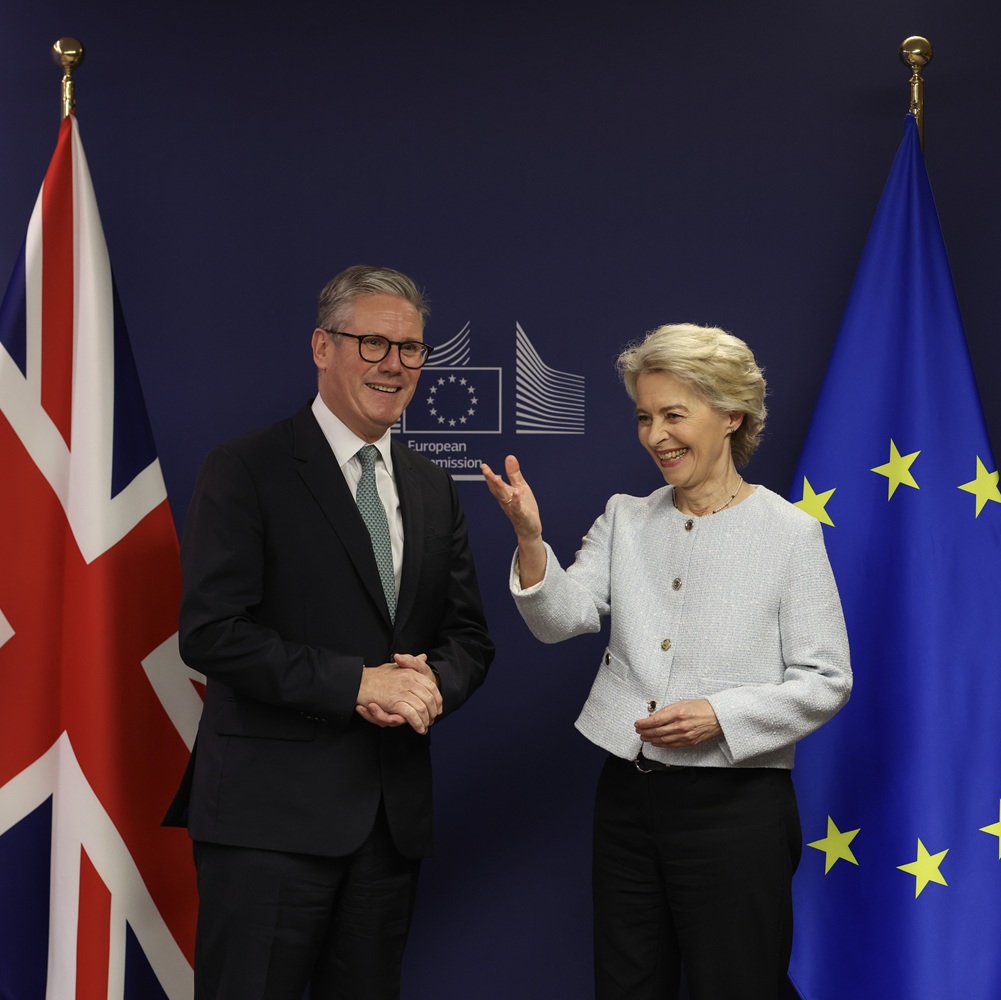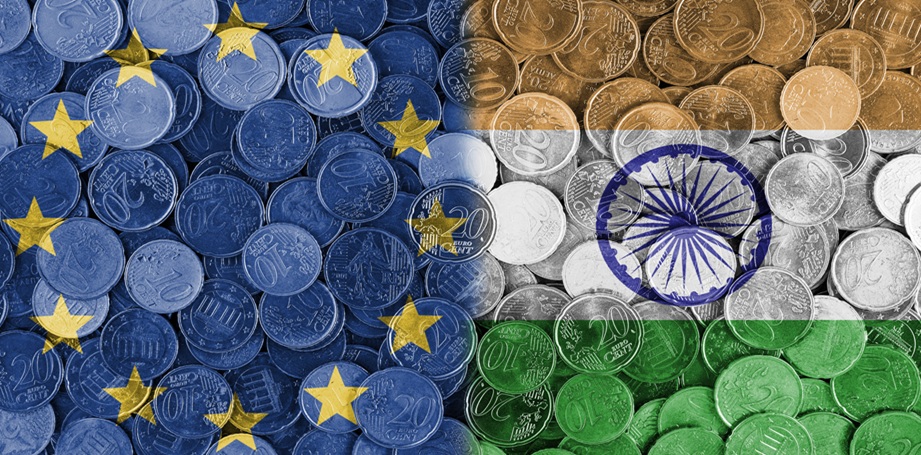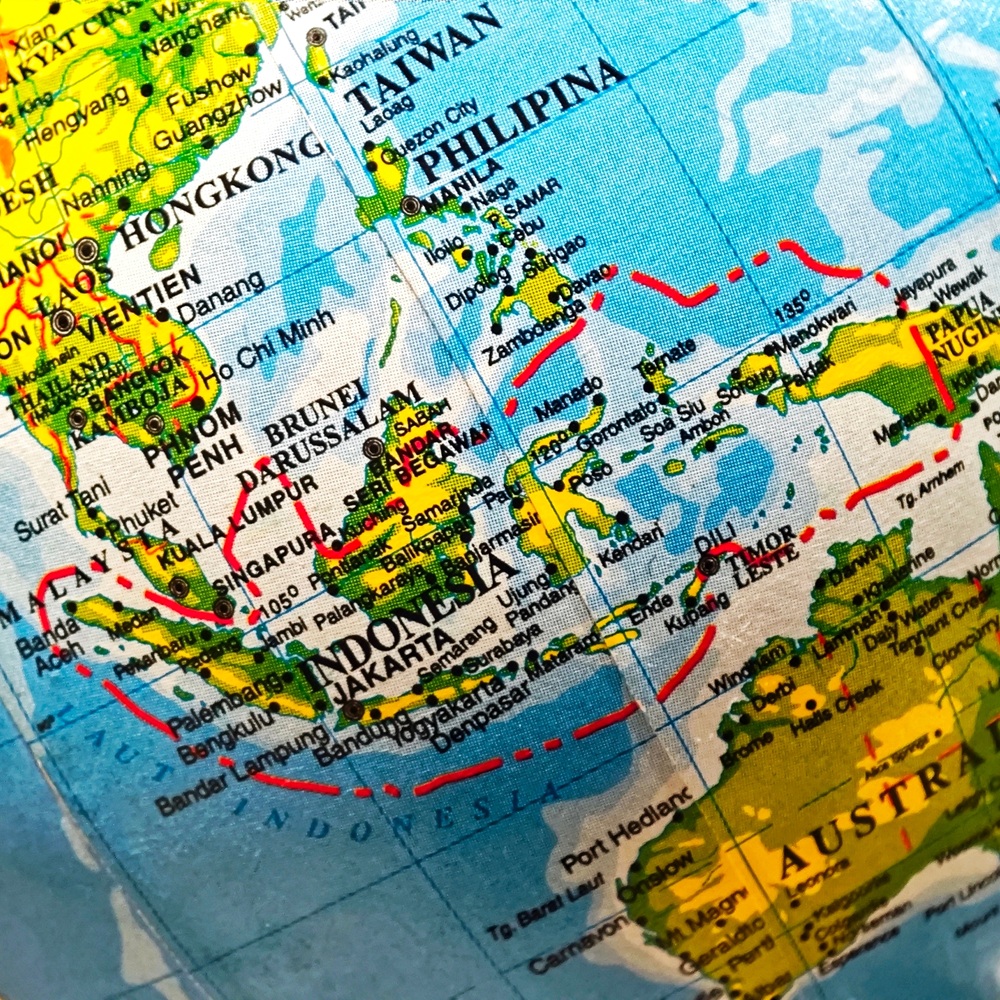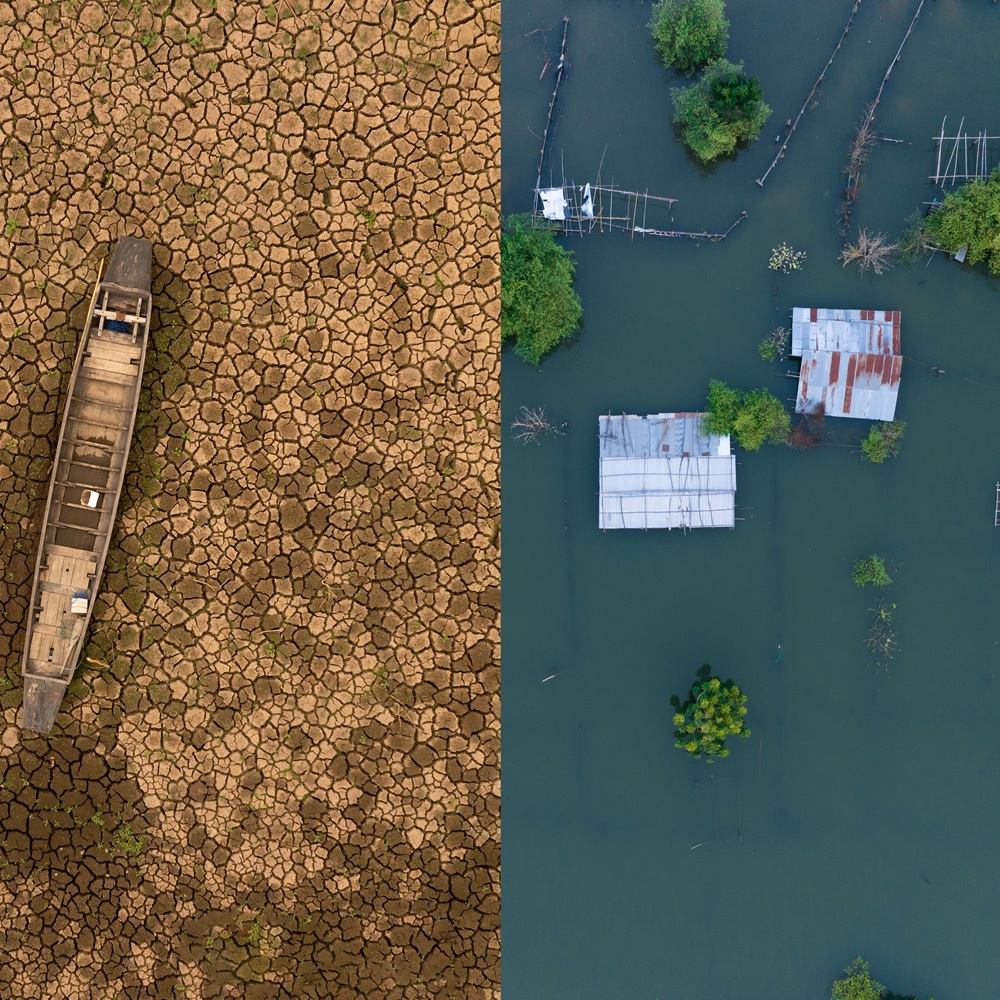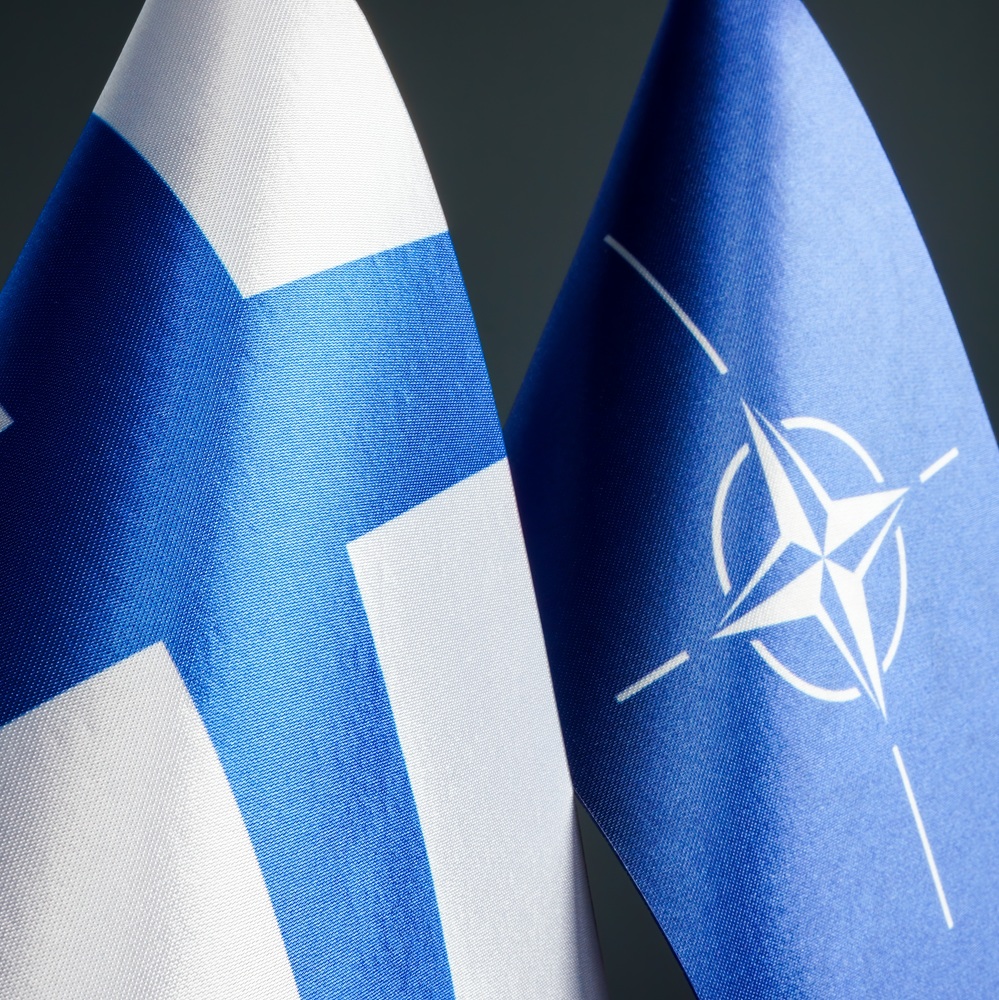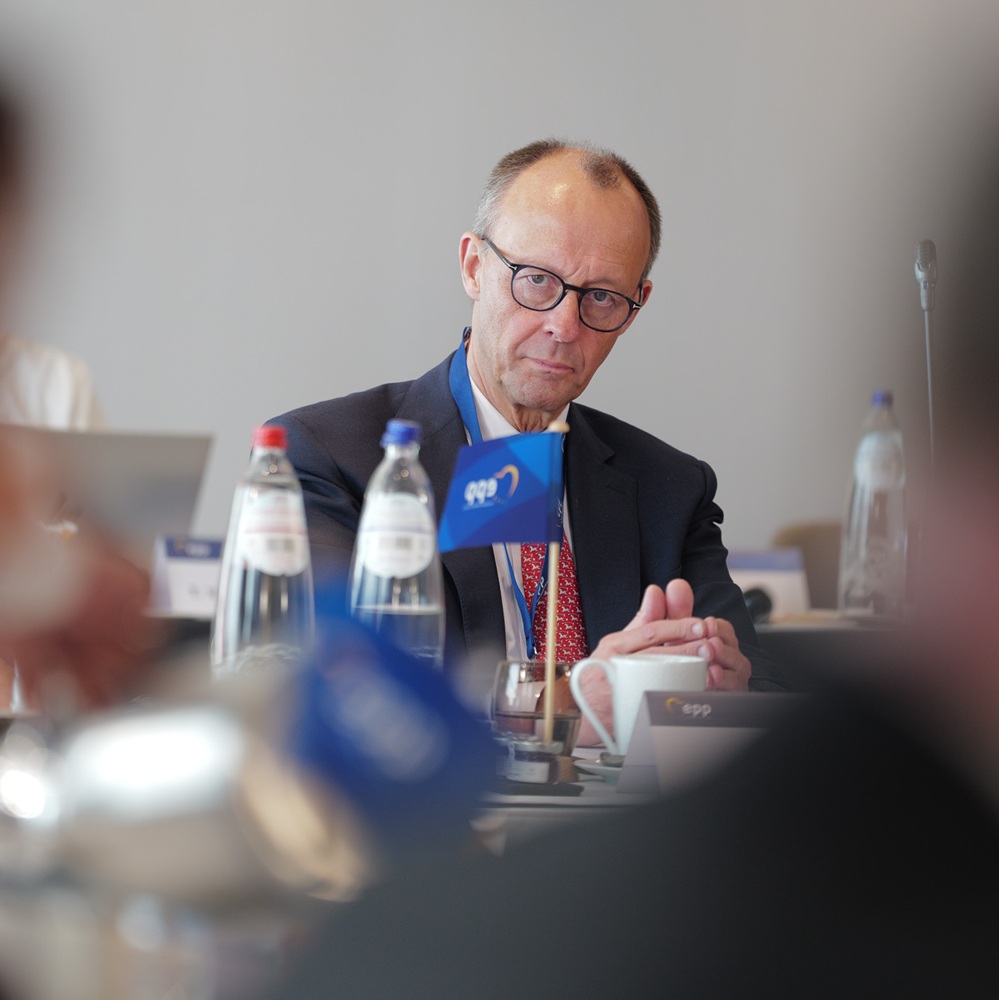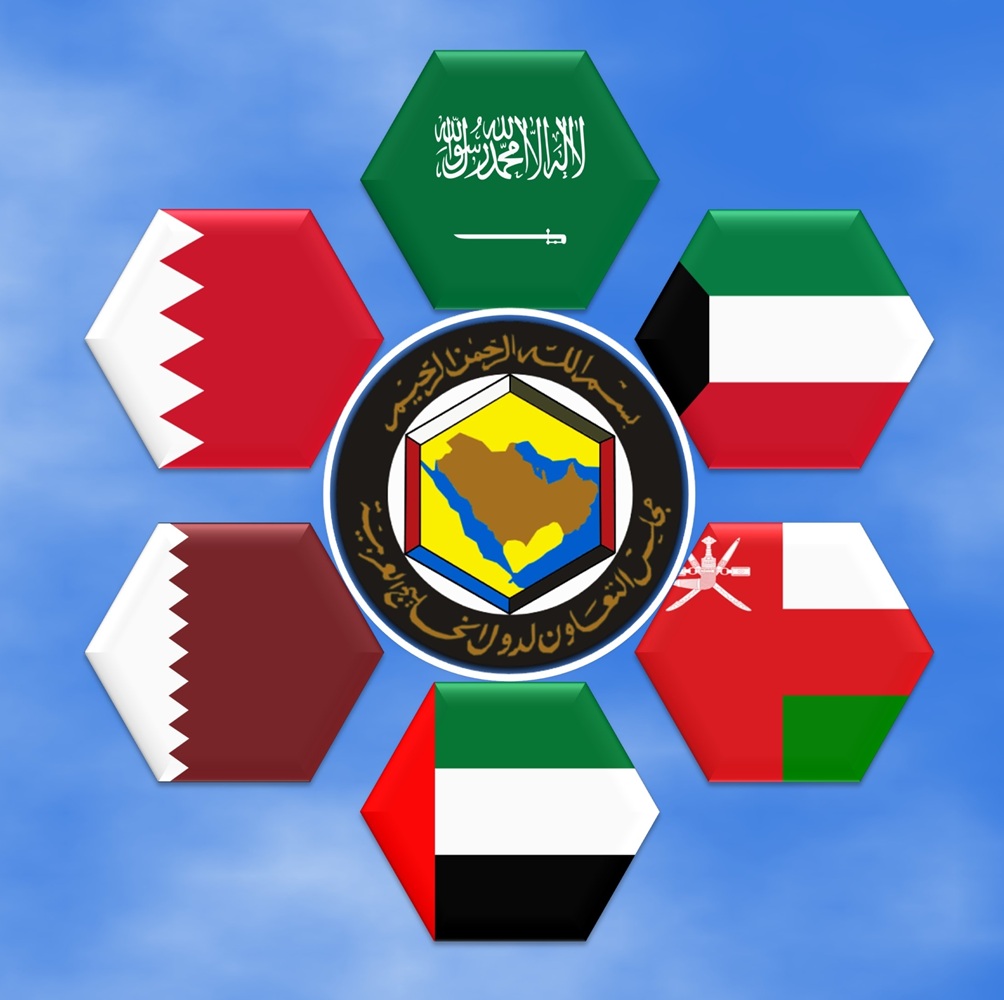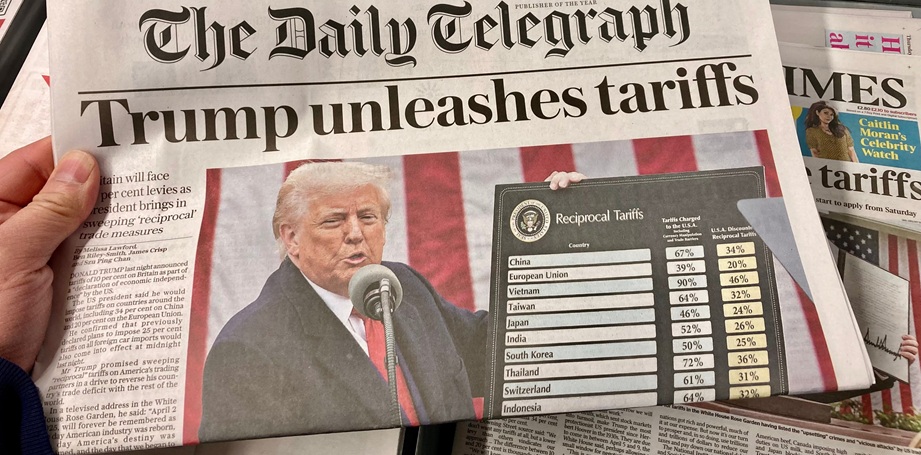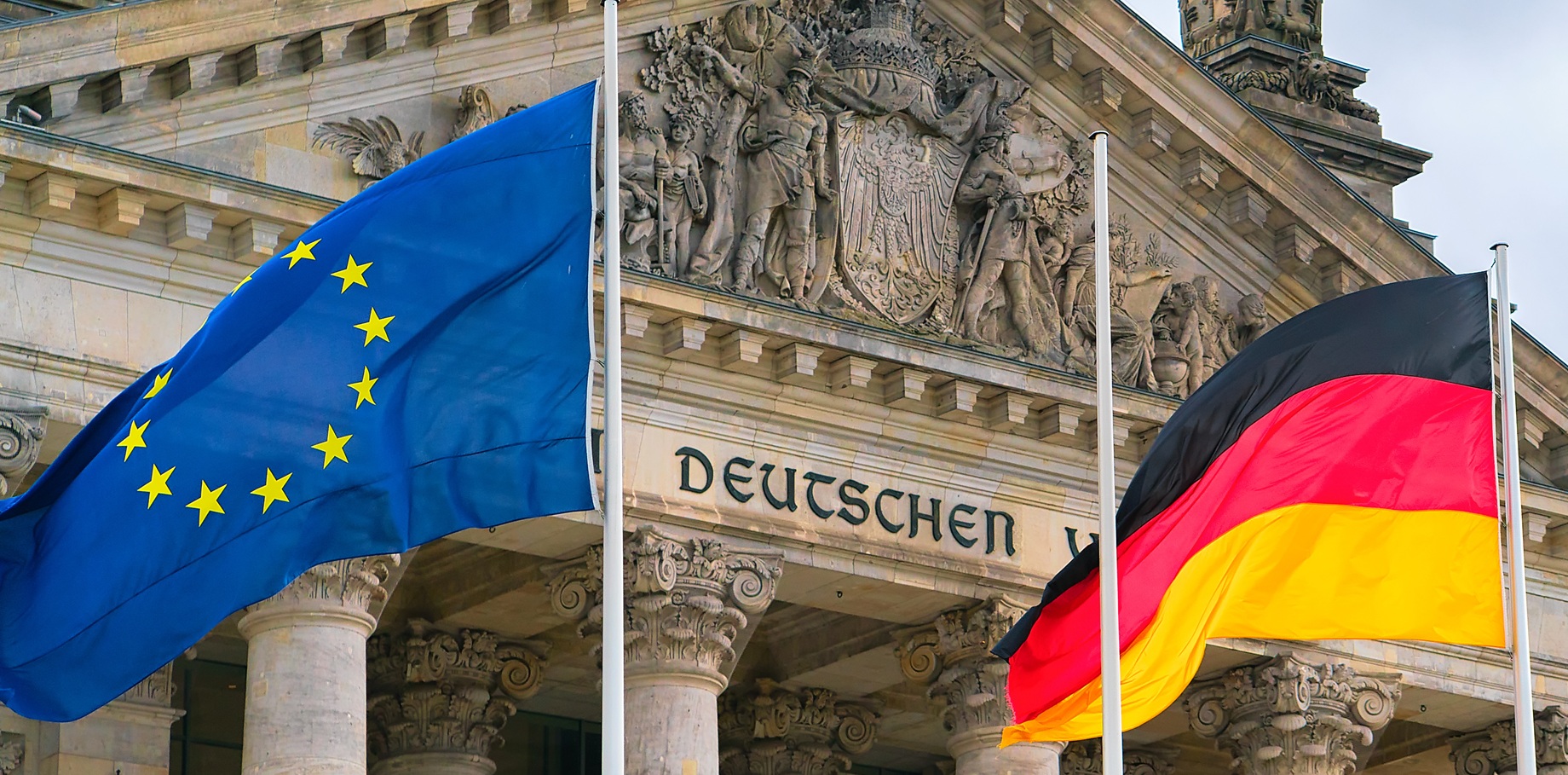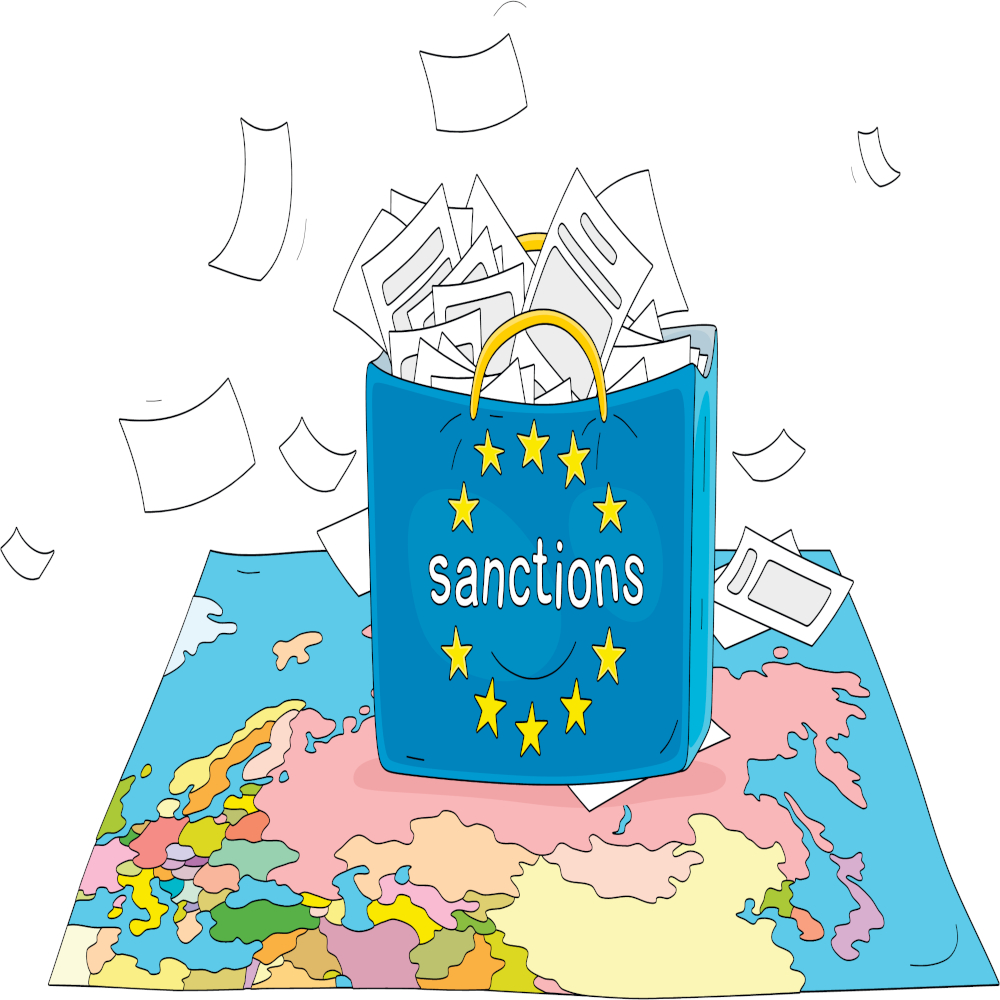
Who supports EU sanctions against Russia’s war in Ukraine? The role of the defence of European values and other socioeconomic factors
by Alessandro Indelicato , Juan Carlos Martína
한국어로 읽기 Leer en español In Deutsch lesen Gap اقرأ بالعربية Lire en français Читать на русском Introduction On 24 February 2022, Russia launched a full-scale invasion of Ukraine, following the military actions that began with the annexation of Crimea in 2014. The conflict is having devastating consequences, including widespread death and displacement, destruction of infrastructure, and a global energy crisis, also heightening geopolitical tensions (Kurapov et al., Citation2023). Pertiwi (Citation2024) contended that since the crisis in Eastern Ukraine and Russia’s annexation of Crimea in 2014, the European Union (EU) has adopted sanctions as the key policy response targeting Russia’s aggressive behaviour. These restrictive measures were applied by the EU in multiple rounds and packages and gradually became the cornerstone of the EU’s policy towards Russia. (p. 61) There is extant literature studying the direct consequences of the war, such as humanitarian crises, economic impacts and geopolitical instability. Numerous countries have experienced food shortages and rising prices due to disruptions in supply chains, worsened by the crisis in Ukraine and the closure of airspace (Hellegers, Citation2022). Concurrently, the war has caused an unprecedentedly volatile energy market, as many European countries were obliged to seek alternative energy sources to Russian imports, demanding more oil and natural gas from alternative suppliers (Liadze et al., Citation2022). The invasion has also fuelled inflation across the EU, not only affecting energy, which is essential in all the sectors of the economy but also other sectors like food, for example, as Ukraine is a major global grain producer (Ozili, Citation2024). The added value and main contribution of this paper is based on the use of grounded social scientific methods like the Fuzzy Hybrid TOPSIS and the Ordered Probit, to analyse the EU citizens’ support of the sanctions against Russia, providing more nuanced insights on what factors are the most important to be in favour and against the sanctions. Thus, in particular, our study contributes to filling one of the important gaps mentioned by Pertiwi (Citation2024) in the analysis of the literature on the EU’s approach to sanctions on Russia. Concretely, our study fills in part the fifth gap in the analysis of causal mechanisms that examine the sanctions, including relevant actors like the EU citizens. Thus, we first provide an in-depth analysis of European citizens’ views on EU sanctions to weaken Russia and support Ukraine. And then, we analyse the main factors that affect the EU citizens’ support of the sanctions taken by the EU against Russia and in favour of Ukraine. The study includes data from 26,461 respondents across the 27 EU Member States, collected through the 98th Eurobarometer survey (Winter 2022–2023), which examined the EU’s response to the war in Ukraine. The paper is organised as follows: Section 2 provides a brief overview of the literature review. Section 3 presents the dataset used, and the methodological approach. In Section 5, the results are presented, followed by Section 5, which offers a thorough discussion of the findings. Finally, Section 6 concludes the paper by summarising the main conclusions drawn from the study, identifying implications, limitations of the study, and potential directions for future research. Literature reviewAttitudes towards EU’s sanctions against Russia war in Ukraine Public sentiment for the EU is a complex phenomenon to study and needs to be approached from different angles, including identity, governance, security and the economy. How the public perceives the EU as a guardian of democratic values and good governance directly influences support for its policies, including sanctions on Russia. Boomgaarden et al. (Citation2011) argue that if the people believe that the EU is going to safeguard democratic principles, then they will identify sanctions as a proper means of safeguarding such principles. However, if there is a lack of trust in the EU to defend such values, there will be little support for such sanctions. The purpose of European identity is primarily to determine people’s views on the EU’s actions. Kende et al. (Citation2018) believe that European identity can have a profound impact on solidarity with common EU policies, such as sanctions. This would imply that the framing of a common European identity can become the most important factor in eliciting public consent for EU programmes, especially in the midst of geopolitical crises. Thus, public opinion on sanctions is also based on perceptions of the EU’s ability to act in the interests of citizens. According to McLean and Roblyer (Citation2016), if citizens perceive the EU as doing the best it can for its citizens, particularly in terms of economic stability and governance, they are more likely to support sanctions against Russia. However, if the EU is perceived as wasteful, or its policies are perceived as economically harmful, then the potential for support for sanctions will be low. This explains the need to ensure that EU action is consistent with shared perceptions of political effectiveness and economic benefit. The imposition of economic sanctions is one of the highest prioritised tools in the modern world, especially against threats to stability and security. The EU sanctions on Russia, especially after the annexation of Crimea and the invasion of Ukraine, have stimulated an immensely wide public discussion (Karlović et al., Citation2021). An important question is: What is the role of perceived security threats in shaping public opinion about these sanctions? It has been made known through investigation that subjective security risk strongly predicts public opinion regarding EU sanctions against Russia. Frye (Citation2019) argues that sanctions are not always supported but vary depending on how people view security threats. Public support is higher when sanctions are framed as protection against an external threat. When sanctions are perceived as a threat to national or economic security, they can generate opposition. The EU’s collective response to the Russia–Ukraine conflict also shows that public opinion on sanctions is shaped by both security interests and normative expectations of justice and self-determination (Bosse, Citation2024). This mutual influence can lead to mixed public responses, with some seeing sanctions as an ethical necessity, while others withdraw their support due to perceived economic and national security risks. The way EU sanctions are proposed and implemented also influences public opinion. According to Sjursen (Citation2015), citizens will be more supportive of sanctions if they see EU institutions as representative and transparent. Conversely, an image of bureaucratic distance or lack of public participation in decision-making can undermine trust and lead to opposition. Thus, in line with this background, we pose our first research question as follows: (1) How do European values and security threats influence the intensity of public support for EU sanctions against Russia?Socioeconomic factors in shaping attitudes towards EU sanctions Support for economic sanctions against Russia is widespread among the EU, varying according to socioeconomic status, demographic characteristics and political engagement. As Frye (Citation2017) has noted, economic prosperity is a key predictor of support for sanctions. Those who are financially ‘safe’ are more likely to support EU-imposed sanctions, as they are less directly affected by the economic burden. Previous studies have shown that those in more affluent income groups or with stable household finances are more likely to support foreign policy actions, such as sanctions, that represent broader European values, even if they are economically costly (Alexandrescu, Citation2024). This is consistent with the findings of Lepeu (Citation2025), which recognises that citizens who rate their own economic situation as ‘very good’ are far more likely to support sanctions than those facing financial hardship. On the other hand, citizens facing economic hardship are less likely to be sanction-supportive if they believe that sanctions will negatively impact inflation, increase unemployment or suppress national economic stability. Onderco (Citation2017) found that economic hardship is associated with higher scepticism towards foreign policy decisions that lack tangible personal benefits. This means that the economic price of sanctions is likely to disproportionately affect support among lower-income individuals. Generational differences also play a role in shaping public opinion on sanctions. Older individuals (over 55 years) are more supportive of EU sanctions, as they have a historical perspective on European security and are more politically engaged (Alexandrescu, Citation2024). On the other hand, younger people (15–34 years) have weaker support, possibly because they have different priorities, such as financial stability and employment, which could be considered more pressing than geopolitical concerns (Onderco, Citation2017). Alexandrescu (Citation2024) also suggests a new generational divide in attitudes towards coercive diplomacy, suggesting that efforts to build popular support for sanctions must consider young Europeans’ concerns and values about economic consequences and political transparency. Political interest is a second important predictor of support for EU sanctions. Politically knowledgeable and engaged citizens tend to be more supportive of EU foreign policy decisions, including sanctions (Alexandrescu, Citation2024). Thus, there is political ideology duality: left and centre-left voters support sanctions if they are anchored in a broader vision of upholding international law and human rights, while centre-right and populist voters are likely to be more sceptical if sanctions are perceived as infringing on national sovereignty (Onderco, Citation2017). As in the literature, the likelihood of being a strong supporter of EU sanctions depends on several socioeconomic and demographic factors, our second research question builds on the following: (2) Do socioeconomic characteristics influence the likelihood of being a strong supporter of EU sanctions against Russia?Dataset and methodology The dataset of the study is based on the Standard Eurobarometer 98.2 (EB98) survey Winter 2022–2023 which was conducted from 12 January to 6 February 2023 in 39 countries or territories. In the study, we only use the dataset from the 27 Member States of the EU, without considering the data from the other twelve additional countries included. The dataset was collected about a year after the start of the Russian invasion of Ukraine, covering the following five topic areas identified by the European Commission (Citation2024): (1) The EU’s response to the invasion of Ukraine; (2) the actions taken as a unified EU response to the invasion; (3) the consequences of the war in Ukraine; (4) the European security threat; and (5) the future EU actions in the wake of the war., and aims to analyse the solidarity of European citizens with the Ukrainian people. The sample size for each country was around 1000 respondents except for Malta with 503, making a total of 26,461 respondents. The endogenous variable of the study is obtained by applying the Fuzzy Hybrid TOPSIS approach to the items of the survey included to measure the degree of support of the respondents towards the measures taken by the EU in response to the Russian invasion of Ukraine. The following five items were included in the analysis: (1) financing the purchase and supply of military equipment to Ukraine; (2) imposing economic sanctions on the Russian government, companies and individuals; (3) providing financial support to Ukraine; (4) providing humanitarian support to the people affected by the war; and (5) welcoming into the EU people fleeing the war. The question introduction was the same for all the items: The EU has taken a series of actions as a response to Russia’s invasion of Ukraine. To what extent do you agree or disagree with each of these actions taken? The responses to the question for each item were given using a complete 5-point Likert scale, where: 1 = totally agree; 2 = tend to agree; 3 = do not know; 4 = tend to disagree; and 5 = totally disagree. The scale was reversed to enhance interpretability, ensuring that higher values are aligned with those citizens who expressed higher support for the measures taken by the EU. The analysis of the variables affecting the citizens’ support was based on the selection of 14 exogenous variables, including age, gender, political interest, perception of the situation in the country, employment personal perception, financial household perception, the labour market perception of the country, the provision of public services perception, the overall image of the EU, the perception of the threat posed by the Russian war in Ukraine to security in the EU and the country itself, the personal perception that standing against the Russian invasion of Ukraine, the EU is defending European values, and the political orientation. More information about the exogenous variables can be found in Table A1 in the appendix. The Ordered Probit model will provide interesting and nuanced results of whether some exogenous variables affect the support of the EU sanctions taken by the EU in response to the Russian invasion. For example, for each of the variables included in the analysis, it will be possible to analyse to what extent some of the categories support more or less the sanctions. Similarly, it will be possible to determine if some of the variables have a significant effect on the level of support. Methodology Opinion surveys are affected by the subjective judgments of respondents, leading to potential inaccuracy in interpreting response categories (Disegna et al., Citation2018). For instance, ‘totally agree’ for one respondent could be equivalent to simply ‘tend to agree’ for another. For this reason, Fuzzy Set Logic methods are becoming very popular in social sciences to manage the uncertainty associated with survey responses effectively (Cantillo et al., Citation2021; Indelicato & Martín, Citation2024). The study uses the Fuzzy Hybrid TOPSIS Approach to calculate the endogenous variable that measures the support (sup) of the respondents towards the sanctions taken by the EU against Russia. The method is grounded in the fuzzy set theory proposed by Zadeh (Citation1965), which was introduced for handling the inherent uncertainty and vagueness of information provided by answers to social surveys (Carlsson & Fullér, Citation2001; Disegna et al., Citation2018; Mamdani & Assilian, Citation1999). There are multiple fuzzy set representations that can be used to associate the categories of the answers given in the survey (Nguyen et al., Citation2005). In the study, we use the Triangular Fuzzy Numbers (TFNs), which are the most used fuzzy sets (Anand & Bharatraj, Citation2017; Wang, Citation2017). The final representation of the answers from the dataset is as follows: (1) totally disagree is represented by (0, 0, 30); (2) tend to disagree by (20, 30, 40); (3) do not know by (30, 50, 70); (4) tend to agree by (60, 70, 80); and (5) totally agree by (70, 100, 100). The hybrid nature of the method is based on the application of the Technique for Order of Preference by Similarity to Ideal Solution (TOPSIS), which calculates the synthetic indicator (Hwang & Yoon, Citation1981). We omit the mathematical formulation of the method for simplicity and ease of exposition. Interested readers can consult many existing papers, such as (Cantillo et al., Citation2023; Indelicato et al., Citation2023; Martín et al., Citation2020; Martín & Indelicato, Citation2023). We will use sup which provides relative support for the sanctions on Russia taken by the EU after invading Ukraine, as the dependent variable for the econometric model. The variable will be categorised into five quintiles according to the ranking of the indicator in order to use an ordered probit model. The marginal effects of the results will be used to analyse the main determinants that explain the highest support of EU citizens. In the study, we use the Daly normalisation for all the categories that act as exogenous variables in the model. Thus, it is possible to determine the marginal effects of each category with respect to the sample-weighted average. We omit the discussion of the technicalities of the model and exogenous variables normalisation. Interested readers can consult Daly et al. (Citation2016), Greene and Hensher (Citation2010), Hensher et al. (Citation2015) and Martin and Roman (Citation2021). Results Figure 1 shows the kernel density of the exogenous variable that measures the support of EU individuals for the sanctions against Russia taken by the EU for the whole sample (panel a) and for those who totally agree and totally disagree with the EU imposing the sanctions to defend European values (panel b). The results indicate that a small number of respondents do not support the sanctions imposed by the EU at all, with 170 citizens giving a score of 1 to all survey items included in the scale. Conversely, a significant portion of the population holds a more neutral position, as shown by responses falling in the range of 0.3–0.6. Additionally, a substantial number of citizens – specifically, 6430 – express their strong support for the sanctions by responding with a score of 5 to all items. Figure 1. Support kernel density. Panel (b) of the figure clearly distinguishes between the two categories of respondents. It shows that those who strongly support the defence of European values are more in favour of the sanctions compared to those who strongly oppose them. Similar figure patterns are obtained for the categories of those who have a positive or negative image of the EU, and for those who think that the Russian invasion of Ukraine is seen as an important threat to the security of the EU. Nevertheless, this will be further discussed with the results of the ordered probit model. Table 1 shows the main drivers to support or not the sanctions taken by the EU against Russia. The table is obtained from the marginal effects obtained from the ordered probit model, which is in the fifth quintile of the support distribution, and refers to the citizen group of the strong supporters (Table A3, in the appendix). It can be seen that the main drivers to support the sanctions are totally agreeing that by standing against the Russian invasion, the EU is defending European values, having a very good or rather good image of the EU, totally agreeing that the EU security is under threat with the Russian invasion, and to have a very good financial situation in the household. All the coefficients are significant at 999 per thousand. The results of the ordered probit model, as well as the complete table of the marginal effects, can be consulted in the appendix. Table A2 shows that all the exogenous variables affect the support level except the area in which the respondent resides, so the support is transversal to whether the European lives in a rural, middle town or large town. It is also interesting to observe that all the threshold parameters of the ordered probit model result significant, i.e. the five different quintiles of the distribution can be allocated without the need to collapse some of the categories used in the estimation. Table 1. Main drivers to be or not a strong supporter of the EU sanctions. Interestingly, the main drivers to be in the population segment of those who do not strongly support the EU sanctions are the opposite categories of supporting the sanctions: totally disagreeing or tending to disagree with the defence of European values, totally disagreeing or tending to disagree with the fact that the invasion of Ukraine is a security threat to the EU and having a very bad image of the EU. The coefficients of Table 1 have been extracted from Table A3, and need to be interpreted as follows: the coefficients are the marginal effects of the category to be or not a strong supporter of the EU sanctions. For example, the coefficient of 0.105 for individuals who totally agree that the EU is defending European values by standing against the Russian invasion of Ukraine indicates that this group has a 10.5 per cent higher likelihood of being strong supporters of EU sanctions compared to the average citizen in the overall sample. In a similar manner, the coefficient of −0.225 for the category of total disagreement indicates a 22.5 per cent lower probability of being a strong supporter. Other interesting results that can be seen in the complete marginal effects table (Table A3, in the appendix) are that the type of urbanisation where the respondent lives, namely rural village, small and mid-size town or large town, is the only variable of the twelve under analysis which does not have any significant effect on being a strong supporter of the sanctions. For the rest of the variables, there is always a category with more odds of being or not in the category of strong supporters. It is interesting to note that the younger generations (between 15 and 24 and between 25 and 34) are less likely to be in the category of strong supporters than those over 55, who are significantly more likely to be in this category. Similarly, those who have a strong political interest, have a good personal job situation, think that the economic situation of their country is rather good, are leftist or left-centre, think that the employment situation of the country is rather good, are males, or have a rather good financial situation have a higher probability of being in the category of strong supporters. Conclusions In a recent speech by Jens Stoltenberg, former Secretary General of NATO, the following assessment was made: In just a few weeks, NATO leaders will meet in Madrid. We will make important decisions. To continue to strengthen and adapt our Alliance to a new security reality and protect our people and our values. I look forward to the day when we can welcome both Finland and Sweden into our Alliance. This will make Finland and Sweden safer. NATO stronger. And the whole Euro-Atlantic area more secure. (NATO, Citation2022) Although NATO’s strategic decision affects the entire geopolitical landscape, public perceptions of EU sanctions need to be addressed through a more nuanced, evidence-based approach. Public opinion on sanctions is driven not only by security concerns but also by economic and political factors that underpin individual belief systems. To measure the determinants of support for such policies, this study applies both the fuzzy hybrid approach and the ordered probit model. The first method calculates the endogenous variable that measures the level of support of each respondent. The second method is used to find the main factors of a set of 14 exogenous variables or covariates that affect the support. Our results reveal that there are four important drivers to be a strong supporter of the sanctions taken by the EU against Russia after the invasion of Ukraine in early 2022: (1) totally agreeing that by standing against the Russian invasion of Ukraine, the EU is defending European values, (2) having a very good overall EU image, (3) totally agreeing that Russia’s invasion of Ukraine is a threat to the security of the EU, and (4) having a very good household financial situation. Other factors, such as age, gender, or political orientation, among others, are less determinant in explaining the strong support category. The dataset for the study was obtained from the 98th Eurobarometer, covering winter 2022–2023, providing a solid foundation for the objectives pursued in the study. Our results imply that, at least in the salient category of being a strong supporter of the EU sanctions, European Parliamentarians and the political parties involved should promote a triad: the defence of European values (Anghel & Jones, Citation2023), a more integrated security defence system that will permit the EU to be more independent from NATO and US (Del Sarto Citation2016; Howorth Citation2018), and a solid campaign of improving the EU image, highlighting the benefits of being in the union (Elmatzoglou, Citation2020). The European values of human rights and dignity, as well as the principles of living in liberal democracies, should not be undermined by misinformation campaigns from autocratic regimes. The invasion of Ukraine constitutes the biggest security threat in Europe since the end of the Cold War, fostering a wave of fear and real politics about the necessity of increasing the military budget. Europeans have seen more closely how the lives of human beings are worth almost nothing when their homes are bombed, and they have to leave with just the bare minimum, stopping their daily lives and becoming refugees in countries that may not welcome them with open arms. There is a need for effective communication campaigns that change the focus from generic issues such as ‘Europeanness’ fostering a common national identity or sense of belonging to a pragmatic branding strategy that achieves a power actor in the new turbulent geopolitical battlefield. Recent developments, in the light of newly elected President Donald Trump’s views on NATO and US foreign aid, have added uncertainty to the EU’s strategic calculus on sanctions. Trump’s concerns about NATO’s burden-sharing and his ambivalent stance on continued US military aid to Ukraine have set off alarm bells among EU policymakers and underscored the need for a European security policy that is less dependent on US leadership (Sorgi, Citation2025). Thus, it is the time for a more than-less European Union mentality that decreases Euroscepticism, a time to strengthen public support for the EU. This shift requires an emphasis on the tangible benefits that EU membership brings to member states, including economic stability, enhanced security, and the promotion of shared values like democracy and human rights. By fostering greater awareness and understanding of the EU’s role in addressing cross-border challenges, citizens can better appreciate the advantages of unity over division. Engaging with local communities, encouraging open dialogues, and actively involving citizens in EU decision-making processes can further bridge the gap between the EU and its citizens, reinforcing a sense of belonging and shared purpose. This study has some limitations that can be addressed in future studies. First, the dataset is a point-in-time measure of public opinion, surveyed in the winter of 2022–2023. Due to the dynamic nature of the geopolitical environment, longitudinal studies are needed to examine how public support for EU sanctions may change over time in response to political, economic and military events. Second, other external factors can also be examined to gain a better picture of how other factors could shape people’s opinions. These range from cultural equivalence with Ukraine to geographical proximity to the war zone, exposure to social media narratives, and interaction with Ukrainian refugees. The role of media frames and disinformation campaigns in determining views on EU sanctions is another area that would require more work. Third, latent variables such as societal resilience, institutional trust, geopolitical affinity, and adherence to European values could provide a better understanding of the reasons for support or opposition to EU sanctions. Such variables could also explain the differences in public opinion between EU member states and between different demographic groups. Furthermore, as previous studies on public support (Onderco et al., Citation2023) have also shown, a comparative analysis with previous surveys, for example, in 2008 (Russia-Georgia war), 2014 (annexation of Crimea and Donbas war) with the full invasion of Ukraine in 2022–2023, could also be very useful. Although not directly compared in the current study, future research would benefit from a historical analysis component to explore the continuities and shifts in public opinion during these major geopolitical events and how they change in different EU countries. This would provide a better insight into how threat perceptions, economic concerns and EU identity evolve in response to Russian aggression and EU foreign policy initiatives. Supplemental Material Supplemental data for this article can be accessed online at https://doi.org/10.1080/23745118.2025.2476484. Additional informationFunding Dr Alessandro Indelicato research is funded by the research fellowship “Catalina Ruiz,” provided by the Consejo de Economía, Conocimiento y Empleo of the Gobierno de Canarias, the Agencia Canaria De Investigación Innovación Y Sociedad De La Información (ACIISI), and Fondo Social Europeo of the EU, through the Universidad de Las Palmas de Gran Canaria (Spain). Martín, J. C., & Indelicato, A. (2025). Who supports EU sanctions against Russia’s war in Ukraine? The role of the defence of European values and other socioeconomic factors. European Politics and Society, 1–15. https://doi.org/10.1080/23745118.2025.2476484 References 1. Alexandrescu, M. (2024). Beyond geopolitics: Unraveling public support for economic sanctions in the B9 states at the beginning of the Ukrainian War (2022). SAGE Open, 14(3), 1–17. https://doi.org/10.1177/215824402412683192. Anand, M. C. J., & Bharatraj, J. (2017, March 27). Theory of triangular fuzzy number. Proceedings of NCATM (p. 80).3. Anghel, V., & Jones, E. (2023). Is Europe really forged through crisis? Pandemic EU and the Russia–Ukraine war. Journal of European Public Policy, 30(4), 766–786. https://doi.org/10.1080/13501763.2022.21408204. Bøggild, T., Göbel, S., Lutscher, P., & Nyrup, J. (2024). Standing with Ukraine? How citizens trade off self-interest and principles in supporting war-torn international partners. Research & Politics, 11(2), 20531680241252399. https://doi.org/10.1177/205316802412523995. Boomgaarden, H. G., Schuck, A. R., Elenbaas, M., & de Vreese, C. H. (2011). Mapping EU attitudes: Conceptual and empirical dimensions of Euroscepticism and EU support. European Union Politics, 12(2), 241–266. https://doi.org/10.1177/14651165103954116. Börzel, T. A. (2023). European integration and the war in Ukraine: Just another crisis? JCMS: Journal of Common Market Studies, 61(1), 14–30. https://doi.org/10.1111/jcms.135507. Bosse, G. (2024). The EU’s response to the Russian invasion of Ukraine: Invoking norms and values in times of fundamental rupture. JCMS: Journal of Common Market Studies, 62, 1222–1238. https://doi.org/10.1111/jcms.135698. Brubaker, R., & Cooper, F. (2000). Beyond “identity”. Theory and Society, 29(1), 1–47. https://doi.org/10.1023/A:10070687144689. Bruno, M., & Fazio, G. (2023). Italy’s foreign policy in times of crisis: Public opinion and party dynamics in response to the Ukraine war. European Politics and Society, 24(2), 245–265.10. Cantillo, J., Martín, J. C., & Román, C. (2021). Determinants of fishery and aquaculture products consumption at home in the EU28. Food Quality and Preference, 88, 1–14. https://doi.org/10.1016/j.foodqual.2020.10408511. Cantillo, J., Martín, J. C., & Román, C. (2023). Understanding consumers’ perceptions of aquaculture and its products in Gran Canaria Island: Does the influence of positive or negative wording matter? Aquaculture, 562, 738754. https://doi.org/10.1016/j.aquaculture.2022.73875412. Carlsson, C., & Fullér, R. (2001). Fuzzy reasoning in decision making and optimization (Vol. 82). Springer.13. Daly, A., Dekker, T., & Hess, S. (2016). Dummy coding vs effects coding for categorical variables: Clarifications and extensions. Journal of Choice Modelling, 21, 36–41. https://doi.org/10.1016/j.jocm.2016.09.00514. Del Sarto, R. A. (2016). Normative empire Europe: The European Union, its borderlands, and the ‘Arab Spring’. JCMS: Journal of Common Market Studies, 54(2), 215–232. https://doi.org/10.1111/jcms.1228215. Disegna, M., D’Urso, P., & Massari, R. (2018). Analysing cluster evolution using repeated cross-sectional ordinal data. Tourism Management, 69, 524–536. https://doi.org/10.1016/j.tourman.2018.06.02816. Elmatzoglou, I. (2020). EU branding. Efforts to improve the EU image. Place Branding and Public Diplomacy, 16(4), 326–335. https://doi.org/10.1057/s41254-020-00180-517. European Commission. (2022). EU’s response to the war in Ukraine. Issue February. European Commission. https://europa.eu/eurobarometer/surveys/detail/2772(open in a new window)18. European Commission. (2024). EDIS: Our common defence industrial strategy. Accessed January 15, 2025, from https://defence-industry-space.ec.europa.eu/eu-defence-industry/edis-our-common-defence-industrial-strategy_en(open in a new window)19. Frye, T. (2017). Property Rights and Property Wrongs: How Power, Institutions, and Norms Shape Economic Conflict in Russia. Cambridge University Press.20. Frye, T. (2019). Economic sanctions and public opinion: Survey experiments from Russia. Comparative Political Studies, 52(7), 967–994. https://doi.org/10.1177/001041401880653021. Gorg, H., Jacobs, A., & Meuchelböck, S. (2023). Who is to suffer? Quantifying the impact of sanctions on German firms. IZA Discussion Paper No. 16146. https://ssrn.com/abstract=4456331(open in a new window)22. Greene, W. H., & Hensher, D. A. (2010). Modeling ordered choices: A primer. Cambridge University Press. https://doi.org/10.1017/CBO978051184506223. Hellegers, P. (2022). Food security vulnerability due to trade dependencies on Russia and Ukraine. Food Security, 14(6), 1503–1510. https://doi.org/10.1007/s12571-022-01306-824. Hensher, D. A., Rose, J. R., & Greene, W. H. (2015). Applied choice analysis. Cambridge University Press.25. Howorth, J. (2018). Strategic autonomy and EU-NATO cooperation: Threat or opportunity for transatlantic defence relations? Journal of European Integration, 40(5), 523–537. https://doi.org/10.1080/07036337.2018.151226826. Hwang, C.-L., & Yoon, K. (1981). Methods for multiple attribute decision making. In C.-L. Hwang & K. Yoon (Eds.), Multiple attribute decision making (pp. 58–191). Springer.27. Indelicato, A., & Martín, J. C. (2024). The effects of three facets of national identity and other socioeconomic traits on attitudes towards immigrants. Journal of International Migration and Integration, 25(2), 645–672. https://doi.org/10.1007/s12134-023-01100-128. Indelicato, A., Martín, J. C., & Scuderi, R. (2023). A comparison of attitudes towards immigrants from the perspective of the political party vote. Heliyon, 9(3), e14089. https://doi.org/10.1016/j.heliyon.2023.e1408929. Isernia, P., Martini, S., & Cozzi-Fucile, C. (2024). Shaping public attitudes towards EU sanctions: The role of political narratives in France, Germany, and Italy. Journal of European Public Policy, 31(1), 79–102. https://doi.org/10.1080/13501763.2023.222616830. Karlović, A., Čepo, D., & Biedenkopf, K. (2021). Politicisation of the European foreign, security, and defence cooperation: The case of the EU’s Russian sanctions. European Security, 30(3), 344–366. https://doi.org/10.1080/09662839.2021.196447431. Kende, A., Hadarics, M., & Szabó, Z. P. (2018). National and European identities as predictors of attitudes toward economic and social policies. European Journal of Social Psychology, 48(5), 615–629. https://doi.org/10.1002/ejsp.235732. Koval, N., & Vachudova, M. A. (2024). European Union enlargement and geopolitical power in the face of war. JCMS: Journal of Common Market Studies, 1–12. https://doi.org/10.1111/jcms.1367733. Kurapov, A., Pavlenko, V., Drozdov, A., Bezliudna, V., Reznik, A., & Isralowitz, R. (2023). Toward an understanding of the Russian-Ukrainian war impact on university students and personnel. Journal of Loss and Trauma, 28(2), 167–174. https://doi.org/10.1080/15325024.2022.208483834. Lepeu, J. (2025). Ukraine, the de-targetization of EU sanctions, and the rise of the European commission as architect of EU foreign policy. International Politics, 1–14.35. Liadze, I., Macchiarelli, C., Mortimer-Lee, P., & Juanino, P. S. (2022). The economic costs of the Russia-Ukraine conflict.36. Makarychev, A., & Terry, G. (2020). An estranged ‘marriage of convenience’: Salvini, Putin, and the intricacies of Italian-Russian relations. Contemporary Italian Politics, 12(1), 23–42. https://doi.org/10.1080/23248823.2019.170692637. Mamdani, E. H., & Assilian, S. (1999). An experiment in linguistic synthesis with a fuzzy logic controller. International Journal of Human-Computer Studies, 51(2), 135–147. https://doi.org/10.1006/ijhc.1973.030338. Martin, J. C., & Roman, C. (2021). The effects of COVID-19 on EU federalism. Eastern Journal of European Studies, 12(Special issue), 126–148. https://doi.org/10.47743/ejes-2021-SI0639. Martín, J. C., & Indelicato, A. (2023). A fuzzy-hybrid analysis of citizens’ perception toward immigrants in Europe. Quality & Quantity, 57(2), 1101–1124. https://doi.org/10.1007/s11135-022-01401-040. Martín, J. C., Moreira, P., & Román, C. (2020). A hybrid-fuzzy segmentation analysis of residents’ perception towards tourism in Gran Canaria. Tourism Economics, 26(7), 1282–1304. https://doi.org/10.1177/135481661987346341. McLean, E., & Roblyer, D. (2016). Public support for economic sanctions: An experimental analysis. Foreign Policy Analysis, 13(1), 233–254. https://doi.org/10.1093/FPA/ORW01442. NATO. (2022). Speech by NATO Secretary General Jens Stoltenberg at the kultaranta talks in Finland. Retrieved January 10, 2025, from https://www(open in a new window). nato.int/cps/en/natohq/opinions_196300.htm43. Nguyen, H. T., Nguyen, H. T., & Walker, E. A. (2005). A first course in fuzzy logic. Chapman and Hall/CRC, Taylor & Francis Group. https://doi.org/10.1201/978142005710244. Onderco, M. (2017). Public support for coercive diplomacy: Exploring public opinion data from ten European countries. European Journal of Political Research, 56(2), 401–418. https://doi.org/10.1111/1475-6765.1218345. Onderco, M., Smetana, M. (2023). Hawks in the making? European public views on nuclear weapons post-Ukraine. Global Policy, 14(2), 305–317.46. Ozili, P. K. (2024). Global economic consequences of Russian invasion of Ukraine. In P. Pietrzak (Ed.), Dealing with regional conflicts of global importance (pp. 195–223). IGI Global.47. Pertiwi, L. A. (2024). The EU’s approach to sanctions on Russia: A critical analysis of the existing literature. Central European Journal of International and Security Studies, 18(3), 61–86. https://doi.org/10.51870/NOEX447548. Pospieszna, P., Onderco, M., & van der Veer, R. (2024). Comparing public attitudes towards internal and external EU sanctions: The role of populism, trust and Euroscepticism. East European Politics, 40(2), 345–366. https://doi.org/10.1080/21599165.2023.228908949. Raik, K., Blockmans, S., Dandashly, A., Noutcheva, G., Osypchuk, A., & Suslov, A. (2023). Tackling the constraints on EU foreign policy towards Ukraine: From strategic denial to geopolitical awakening. Instituto Affari Internazionali. https://cris(open in a new window). maastrichtuniversity.nl/ws/portalfiles/portal/137103994/joint_rp_20.pdf50. Sjursen, H. (2015). Normative theory: An untapped resource in the study of European foreign policy. In K. E. Jrgensen, A. K. Aarstad, E. Drieskens, K. Laatikainen, B. Tonra (Eds.), The Sage handbook of European foreign policy (Vol. 2, pp. 197–214). SAGE Publications. https://doi.org/10.4135/978147391519051. Sorgi, G. (2025, February 25). EU eyes €200B secret weapon as Trump dominates Ukraine peace talks. POLITICO. https://www.politico.eu/article/eu-ukraine-peace-talks-donald-trump-russia-war-200-billion-kremlin-us-politics-g20/(open in a new window)52. Staunton, E. (2022). A useful failure: Macron’s overture to Russia. Survival, 64(2), 17–24. https://doi.org/10.1080/00396338.2022.205581953. Tchantouridzé, L. (2022). The Aftermath of the 2008 Russo-Georgian War: Appeasement of Russia and the War in Ukraine. Journal of Peace and War Studies, 77.54. Vignoli, V., & Coticchia, F. (2024). Italian political parties and the war in Ukraine: A strategic dilemma between NATO commitments and domestic constraints. Italian Journal of International Affairs, 59(1), 67–89.55. Wang, Q. (2017). Research on the assessment of psycholinguistic teaching effect with triangular fuzzy information. Journal of Intelligent & Fuzzy Systems, 32(1), 1139–1146. https://doi.org/10.3233/JIFS-1653156. Zadeh, L. A. (1965). Information and control. Fuzzy Sets, 8(3), 338–353.57. Zavershinskaia, A., & Spera, M. (2024). Divided Europe: How France, Germany, and Italy shape the EU’s response to the war in Ukraine. European Foreign Affairs Review, 29(2), 231–256.









